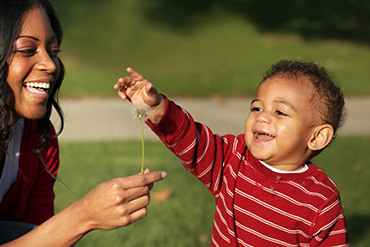Practice Note on Child Development
Child development and RECEs’ responsibilities
To support children’s development, RECEs develop positive, trusting, responsive relationships with them and their families. Ethic B says that “RECEs recognize and respect the uniqueness and diversity of families.” Children develop in different ways within the contexts of diverse family structures, communities and cultures; therefore, RECEs need to understand that children and their families have unique experiences that derive from the historical, social, physical and political structures around them. Knowing this, RECEs learn about children’s unique personalities, interests and abilities. They form partnerships with families — collaborating, communicating and working with families — to provide meaningful opportunities for them to engage in and contribute to the learning environment and their child’s experiences.
Some core responsibilities related to child development are highlighted below.

RECEs:
- Are knowledgeable about research and theories related to the impact of caring and responsive relationships on children’s development, learning, self-regulation, identity and well-being (Standard I: B.I).
- Understand that childhood is not one linear pathway. Children will not adhere to the same developmental timelines or develop in the same ways. Child development is integrated across multiple domains and within a variety of contexts and environments (Standard II: B.1).
- Stay current about relevant research related to how children learn and develop. They understand that children are capable and enthusiastic learners with unique personalities, skills and interests (Standard II: B.4).
- Foster collaborative partnerships with children’s family members. They understand that families are of primary importance in children’s development and well-being, and that children are best understood in the context of their families, cultures and communities (Standard I: B.3).
- Support children in developing coping skills, regulating their behaviour and interacting positively with others. They recognize all children’s capacity to self-regulate and their right to be supported to develop these skills (Standard I: C.4).
- Use technology and assistive technological tools as appropriate to support children’s learning and development (Standard II: C.5).
- Provide safe and appropriate supervision of children based on age, development and environment (Standard III: C.5). They assess the program in order to ensure it is stimulating and that their expectations of children are realistic.
- Use appropriate and effective communication methods and strategies to share information with families regarding the development and learning of children. They are receptive listeners and offer encouragement and support by responding appropriately to the ideas, concerns and needs of children and families (Standard I: C.5; Standard II: C.7).